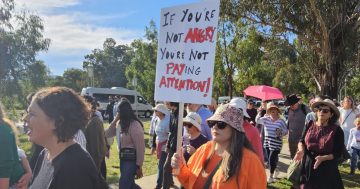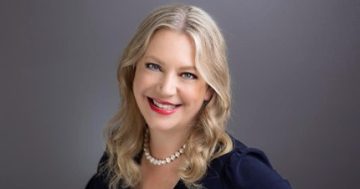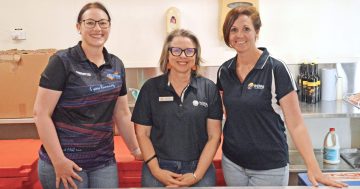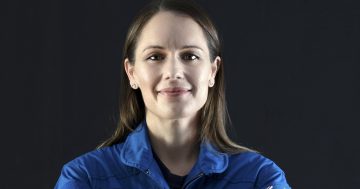Mindi Lowy* says men must take an active role in closing the gender gap in corporate leadership.

Photo: Owen Price
A recent report from LeanIn.org and Survey Monkey found that 60 per cent of male managers say they’re uncomfortable mentoring or working alone with a woman — up 14 percentage points from last year.
This presents a daunting challenge for all of us who care about closing the gender gap in corporate leadership.
Because the truth is women cannot advance themselves alone.
Since men still hold the majority of leadership positions, they are positioned to groom the next generation of leaders.
There are simply not enough women in senior leadership today to advocate for all the female talent in the pipeline behind them.
As a result, men must be part of the solution.
The question then becomes how employers can overcome this gender dynamic.
At PwC, we tackle this challenge directly through a two-day program for potential female partner candidates and their sponsors, called Breakthrough Leadership.
This course is a dedicated module about gender within a broader, three-year curriculum for all partner candidates.
And while all the protégés are women, the sponsors are a mix of male and female partners.
Each partner candidate is assigned a formal sponsor who is responsible for helping them navigate the admissions process.
My sponsor, Marvin Nagler, was a senior partner within PwC’s New York tax practice and one of the people who interviewed me when I joined the firm, right out of university.
We were invited to Breakthrough Leadership in 2013, and one of the first things I noticed was that it was mandatory we attend together.
This was critical because the curriculum focused on how the two of us were going to work together to advance my candidacy.
For this women’s leadership program to succeed we needed men in the room.
Here are some of the lessons we learned:
Sponsorship is different from mentorship
Mentors offer career advice and emotional support and can come from any level in an organisation.
In contrast, sponsors provide career opportunities, so they need to be senior leaders with influence.
While both types of advocacy are valuable, sponsors play a more central role when it comes to advancement.
Research shows that men are more likely to have informal sponsors than their female peers.
That’s why Breakthrough Leadership featured multiple discussions of how sponsors could help women candidates stand out in a crowded, competitive field.
In my case, Marvin focused on helping increase my visibility within our tax practice.
He suggested that I write an article to demonstrate thought leadership and establish myself as an expert.
It was a great idea, but it was difficult because of my client engagements.
That is where Marvin, as my sponsor, was able to intervene and help adjust my client load.
This allowed me time to research, write, and publish a white paper.
He also ensured that I got visibility from my work on this article.
Marvin mentioned the white paper to various leaders, and it gained attention; eventually it was cited in a report issued to the US Congress, which we highlighted in my business case for partner.
From beginning to end that project was a team effort.
Candid feedback is critical
Researchers at Stanford University found that women receive “vague feedback” more frequently than their male peers.
This is a serious obstacle because feedback is so crucial to career growth and development.
Luckily for me, Marvin was particularly good at giving difficult feedback.
I vividly remember him telling me that some members of my team felt I was micromanaging them.
In addition to being direct about the problem, he also took the time to help me brainstorm solutions.
He was always explicit that we were on the same side — that even difficult feedback was for my benefit.
I trusted his judgement and made sure to respond nondefensively.
Those honest conversations were instrumental in helping me develop as a leader.
Diverse networks are stronger
Marvin understood my potential because we worked closely together on several client engagements.
Our relationship was deep, but some of my relationships with others across the firm were still narrow.
I needed a broad network, which is why Marvin pushed me to alter my existing workload, giving me the opportunity to connect with a diverse group of leaders, even though it would have been easier to continue working primarily with him.
He was strategic about finding short-term projects where I could interact with influential partners outside of my specialty area.
He also made sure I had speaking roles at important events and then introduced me to key members of the audience.
All of these actions helped me build my professional network and gain additional advocates.
I’m proud to say I was admitted to PwC’s partnership one year after attending Breakthrough Leadership.
Reflecting on the experience now, I realise how much of the process was a team effort.
I will always be grateful to Marvin for his sponsorship, and I look forward to serving that role myself someday.
The future of our partnership depends on all of us, men and women, working together.
* Mindi Lowy is a tax partner in PwC’s Alternative Investment practice.
This article first appeared at www.fastcompany.com.











